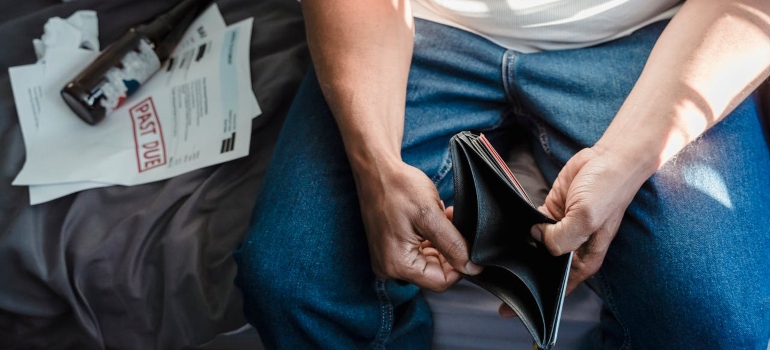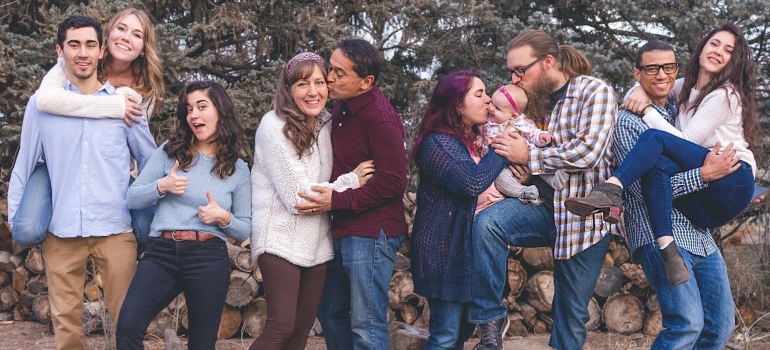Addiction profoundly affects relationships, often leaving loved ones hurt, confused, and struggling to understand what went wrong. Family members, friends, and romantic partners experience the negative effects of addiction in unique but equally challenging ways. The disruption addiction causes doesn’t stop at romantic connections—it extends to family dynamics, friendships, and even professional relationships. Rebuilding these connections after addiction is possible, but it requires dedication, patience, and understanding. We will explore how addiction impacts relationships and offer steps to begin the healing process.
Understanding How Addiction Impacts Relationships
Addiction creates tension, misunderstandings, and emotional disconnection. For many families, addiction introduces instability, with loved ones unsure of what to expect each day. Friends may pull away, unsure how to provide support or fearing enabling behavior. Romantic partners often feel emotionally abandoned or betrayed as the addiction takes center stage in their relationship. Moreover, numerous studies have revealed that 40–60% of cases of intimate partner violence also involve substance abuse.

The damage extends beyond personal relationships. Work dynamics can also suffer as addiction may cause erratic behavior, missed deadlines, or conflicts with colleagues. At its core, addiction isolates people, leaving those struggling and their loved ones feeling lonely. The good news is that healing is possible. Recognizing the impact of addiction on relationships is the first step toward creating positive change.
Loss of Trust and Its Consequences
Trust is one of the first casualties of addiction. Broken promises, dishonesty, and neglect of responsibilities create deep wounds that take time to heal. For example:
- A partner might lose trust after repeatedly discovering lies about substance use.
- Parents may feel betrayed when their child uses stolen money to fund their addiction.
- Friends might struggle to rely on someone who frequently cancels plans or shows up intoxicated.
When trust erodes, it creates barriers to open communication. Loved ones may become guarded, fearing more disappointment. This lack of transparency makes it harder to rebuild mutual support and understanding.
Emotional Strain on Loved Ones
The emotional toll addiction takes on loved ones is immense. Parents may feel guilt or failure, wondering if they could have prevented the addiction. Partners often face anger, sadness, and frustration as they navigate the chaos addiction introduces. Friends may feel helpless and unsure of how to offer meaningful support. Loved ones also experience:
- Anxiety about their loved one’s safety or future.
- Depression from prolonged emotional strain.
- Burnout from trying to manage the consequences of addiction.
The instability addiction brings impacts everyone close to the person struggling, making recovery a shared effort.

Impact on Communication and Conflict
Addiction frequently disrupts healthy communication. Misunderstandings arise when feelings are left unspoken or arguments replace open dialogue. Many families report that addiction increases resentment, leading to frequent conflicts. For example:
- A parent may lash out in frustration at a child struggling with addiction rather than expressing concern.
- A partner might bottle up emotions, leading to explosive arguments.
- Friends may avoid addressing uncomfortable truths, resulting in strained relationships.
Communication breakdowns make it difficult to resolve issues constructively, creating a cycle of frustration and disconnection.
Neglect and Withdrawal from Relationships
When addiction takes hold, personal relationships often take a backseat. Substance use becomes a priority, leaving little time or energy for loved ones. Family events may be skipped, phone calls unanswered, and social outings avoided.
This withdrawal often leads to feelings of isolation, both for the person struggling and their loved ones. The connection between loneliness and addiction becomes apparent as individuals use substances to cope with the void left by strained or broken relationships. Loved ones, in turn, may feel abandoned, amplifying their own sense of loneliness.
Financial and Legal Strain on Relationships
The financial consequences of addiction can be devastating. From mounting debts to job loss, addiction often creates financial instability that affects entire households. Common financial strains include:
- Using savings to fund substance use.
- Accumulating legal fees due to addiction-related issues.
- Losing income from job termination.

Loved ones may feel pressured to provide financial support, leading to frustration and conflict. These challenges are especially common for families who seek professional help, such as medication assisted treatment West Virginia, which can be a crucial part of recovery but also adds to financial burdens.
Enabling and Codependency
Loved ones often try to help, but their actions can unintentionally enable addictive behaviors. For example, providing money to cover debts might remove immediate stress but also perpetuate substance use. Codependency—where one person’s well-being becomes tied to another’s addiction—can develop, creating unhealthy relationship dynamics.
Breaking these patterns requires clear boundaries and a focus on recovery for both individuals. Seeking guidance through family therapy for addiction can help loved ones navigate these challenges while fostering healthier connections.
Breaking the Cycle of Guilt and Shame
Guilt and shame are pervasive in addiction. The person struggling may feel ashamed of their actions, while loved ones often blame themselves for not doing enough. These emotions can create barriers to healing if left unchecked.
Compassion is key. Recognizing that addiction is a complex condition, not a moral failing, allows space for forgiveness. Loved ones and individuals in recovery must approach each other with empathy, understanding that mistakes are part of the journey.
Steps to Begin Rebuilding Relationships
Healing relationships affected by addiction is a complex but rewarding process. Rebuilding requires effort, patience, and a commitment to making real changes. Below, we expand on actionable steps to foster stronger and healthier bonds after addiction.
Re-establishing Trust Through Honesty and Transparency
Trust is fragile, and addiction often shatters it. Rebuilding trust starts with honesty and consistent behavior. Words alone aren’t enough—actions must demonstrate a genuine commitment to change. Transparency about recovery progress, challenges, and feelings reassures loved ones that the individual is taking accountability.
Trust-building is a gradual process. Small steps, like being on time, meeting obligations, and being open about emotions, show reliability. Over time, these efforts will rebuild confidence and strengthen connections. Tips for trust-building:
- Keep promises, no matter how small.
- Be consistent with your words and actions.
- Share your recovery milestones with loved ones.
- Apologize sincerely when mistakes happen.

Seeking Professional Therapy for Relationship Healing
Therapy offers a safe, structured environment to explore and resolve relationship issues. Addiction often brings unresolved conflicts and emotional pain to the surface. Family therapy or individual therapy for addiction provides tools to navigate these challenges while improving communication and emotional understanding.
Family therapy for addiction focuses on the following:
- Identifying patterns of conflict or miscommunication.
- Addressing feelings of hurt or betrayal.
- Developing shared goals for recovery and healing.
Couples therapy can help partners rebuild intimacy and trust, while individual therapy allows each person to process their emotions independently. Professional therapists guide these sessions, ensuring that all parties feel heard and supported.
Setting Healthy Boundaries to Support Recovery
Boundaries are necessary for fostering healthier relationships. They provide clarity about what behaviors are acceptable and help protect both the person in recovery and their loved ones from falling into harmful patterns. Setting boundaries ensures that support doesn’t turn into enabling. Examples of healthy boundaries include:
- Designating time for self-care and personal growth.
- Limiting financial support to avoid enabling behaviors.
- Agreeing on rules for accountability, such as attending therapy or meetings.
For loved ones, setting boundaries can mean saying no to certain requests, even when it’s difficult. For the person in recovery, it might involve avoiding situations or relationships that trigger substance use. These boundaries create a safer environment for everyone involved.
Practicing Open Communication and Active Listening
Healthy relationships rely on open communication and empathy. Addiction often disrupts this, replacing meaningful conversations with arguments or silence. Rebuilding requires both parties to prioritize honest, respectful dialogue. Steps to improve communication:
- Use “I” statements to express your feelings (e.g., “I feel hurt when…”).
- Avoid accusations or blame.
- Stay calm, even during difficult conversations.
- Validate the other person’s emotions, even if you disagree.
Forgiveness and Letting Go of Resentment
Forgiveness is a cornerstone of healing but is often one of the most challenging steps. Addiction leaves scars, and it’s natural for loved ones to feel resentment or anger. Likewise, those in recovery may struggle with self-forgiveness, haunted by guilt over past actions.
Forgiveness doesn’t mean forgetting or excusing harmful behavior. Instead, it’s about releasing the hold those feelings have on you. It allows both parties to move forward without being weighed down by past mistakes. Steps toward forgiveness:
- Recognize that forgiveness is a process, not a single act.
- Focus on the progress being made rather than dwelling on past pain.
- Seek therapy if feelings of anger or resentment persist.

Rebuilding Shared Activities and Positive Experiences
Creating new, positive memories helps repair damaged relationships. Addiction often isolates individuals from their loved ones, leaving a void where connection used to exist. Reintroducing shared activities provides an opportunity to strengthen bonds while enjoying meaningful time together.
Shared activities also encourage social connections in addiction recovery, which are essential for maintaining sobriety and emotional well-being. Examples of activities to try:
- Planning a family outing, such as a hike or picnic.
- Joining a local hobby group or fitness class.
- Volunteering together in the community.
Building a Support System Together
Recovery is not a solo journey. Involving loved ones in the process helps create a sense of unity and mutual support. Programs like Al-Anon or Nar-Anon offer resources for families, while individuals in recovery can benefit from group therapy or drug rehab WV programs. Support systems can include:
- Family members who attend counseling or therapy.
- Friends who encourage sobriety and personal growth.
- Recovery groups that provide accountability and understanding.
For families, attending support groups fosters empathy and provides tools to navigate the challenges of addiction recovery better. For individuals, connecting with peers through programs like substance abuse treatment WV builds resilience and reduces feelings of isolation.
Staying Committed to Personal Growth and Sobriety
Personal growth and sobriety are interconnected. As individuals in recovery focus on improving themselves, their relationships naturally benefit. Commitment to sobriety demonstrates accountability, while personal development builds confidence and emotional stability. Suggestions for personal growth:
- Pursue new hobbies or interests.
- Set realistic goals for physical and emotional well-being.
- Regularly reflect on progress and areas for improvement.
For example, attending a West Virginia treatment center might provide the structured support needed to maintain sobriety while fostering self-improvement. These efforts show loved ones that recovery is more than just abstaining from substances—it’s about creating a healthier, happier life.
Celebrating Milestones and Progress Together
Recovery milestones represent significant achievements, not only for the individual but also for their loved ones. Celebrating these moments together reinforces progress and provides a sense of shared accomplishment. Ways to celebrate milestones:
- Host a small gathering with supportive friends and family.
- Reflect on the progress made since the beginning of recovery.
- Plan an activity to mark the occasion, such as a dinner or outing.
These celebrations serve as reminders that recovery is an ongoing process filled with victories, both big and small. Acknowledging these achievements together strengthens bonds and builds hope for the future. How addiction impacts relationships can be transformed as recovery opens the door to rebuilding trust, connection, and mutual understanding.
Recognizing When to Move On
Not all relationships can be repaired. Addiction sometimes leaves wounds too deep to heal or reveals incompatibilities that can’t be reconciled. Recognizing when it’s time to let go is a difficult but important step in the recovery process.

Letting go doesn’t mean failure—it means prioritizing emotional well-being and creating space for healthier connections. Moving on allows both parties to focus on their own growth without resentment or unrealistic expectations. Signs it may be time to move on:
- Repeatedly experiencing conflict or toxic behavior.
- Feeling unsupported in your recovery journey.
- Recognizing that the relationship is preventing personal progress.
Turning Pain into Progress: Addressing How Addiction Impacts Relationships
How addiction impacts relationships is undeniable, but the potential for healing is equally powerful. By committing to sobriety, practicing open communication, and seeking professional support, individuals can rebuild trust and strengthen emotional bonds. Recovery isn’t just about overcoming addiction—it’s about creating a life filled with love, understanding, and hope. With time, effort, and compassion, relationships damaged by addiction can be transformed into sources of strength and support.
Reference :
https://www.asam.org/blog-details/article/2021/08/09/intimate-partner-violence-and-co-occurring-substance-abuse-addiction



